- - English

The Sibon’s group focus is to understand Coenzyme A metabolism in health and disease. The textbook classic, Coenzyme A is a central metabolic cofactor, known for over 60 years. In addition to its essential role in metabolism it also plays a role in posttranslational modifications of proteins, signal transduction, ageing, epigenetics, neurodegeneration and more.

Professor, projectleider
Moleculaire en celbiologie
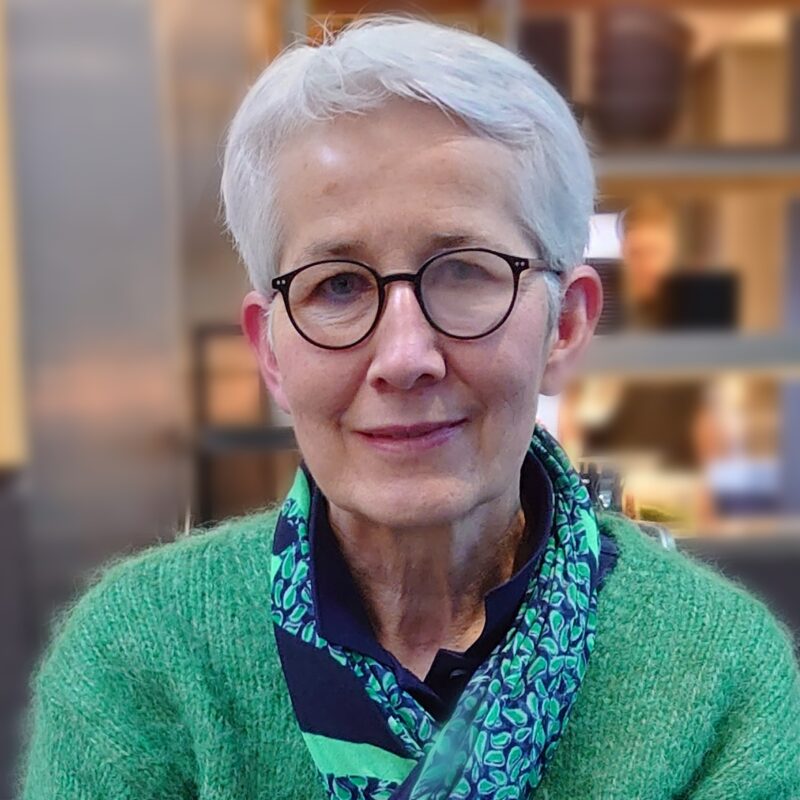
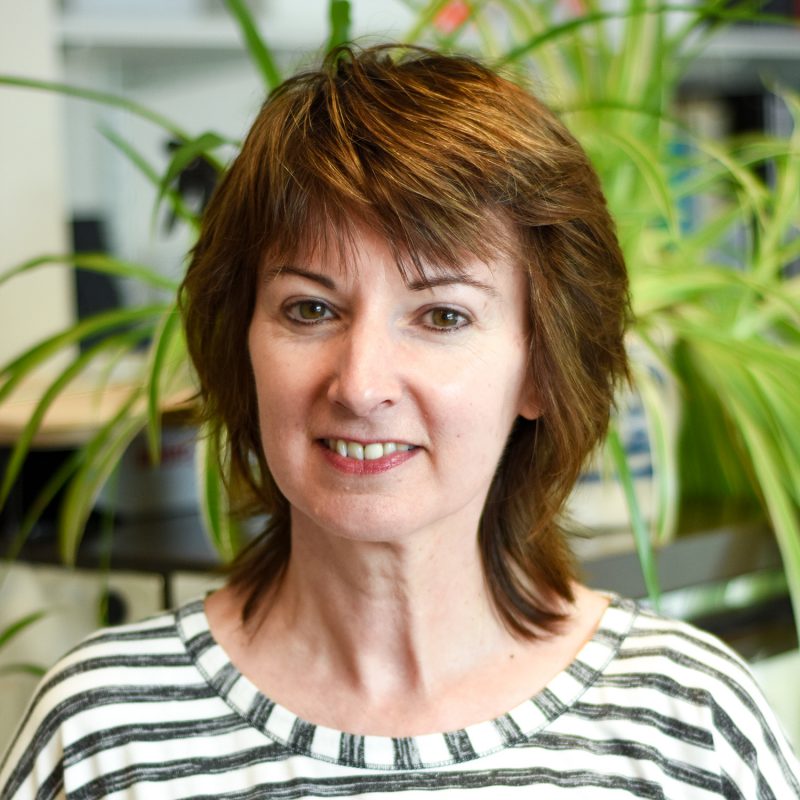
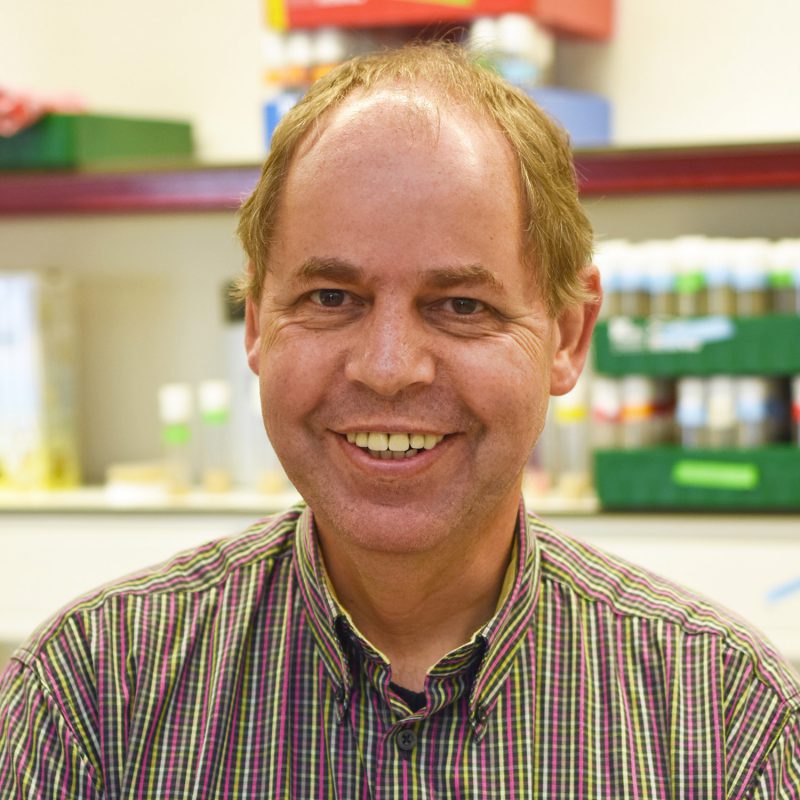
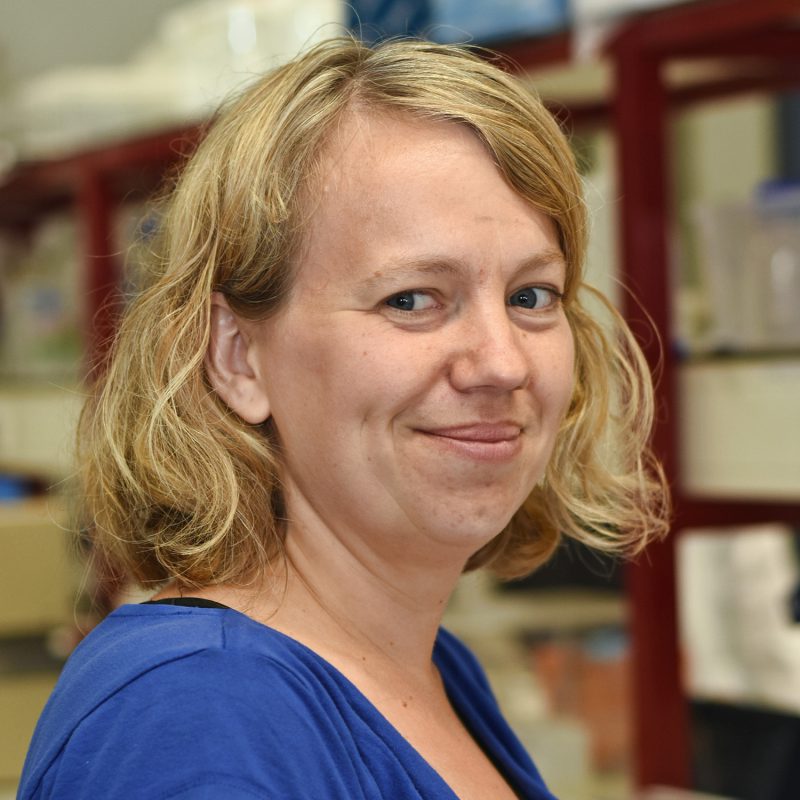
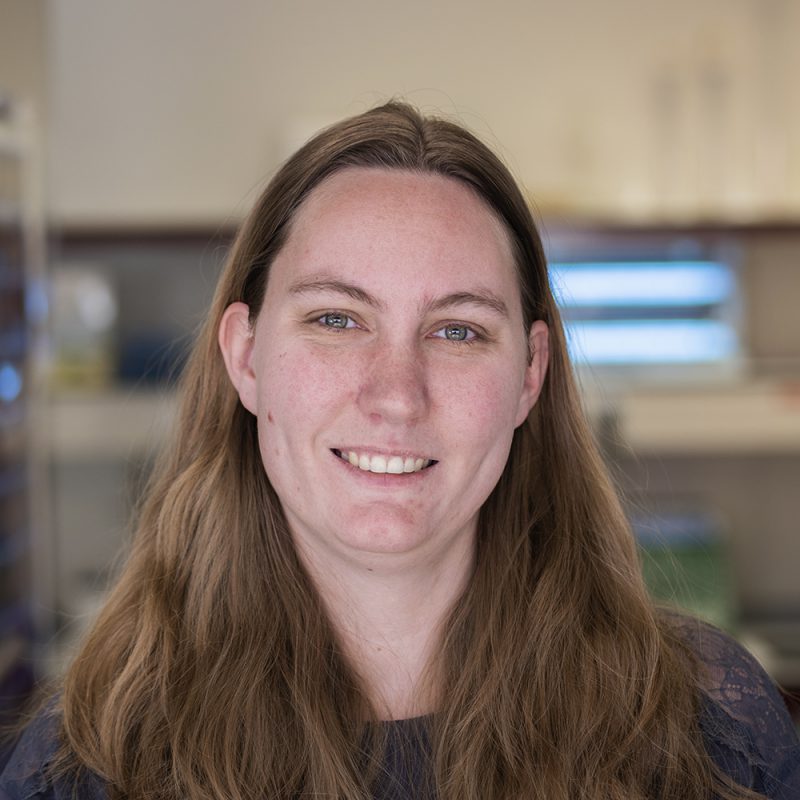
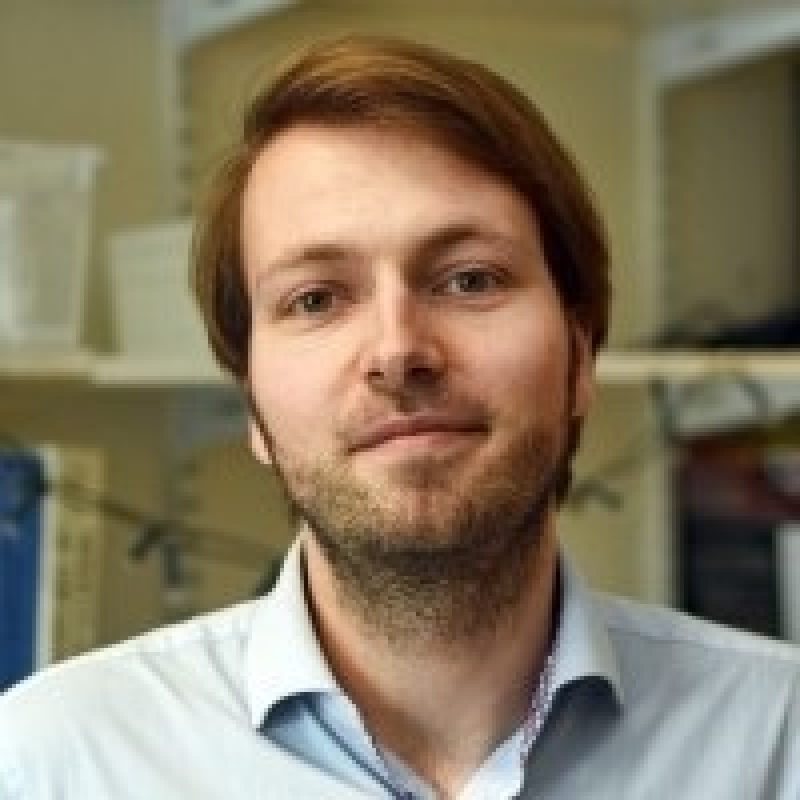
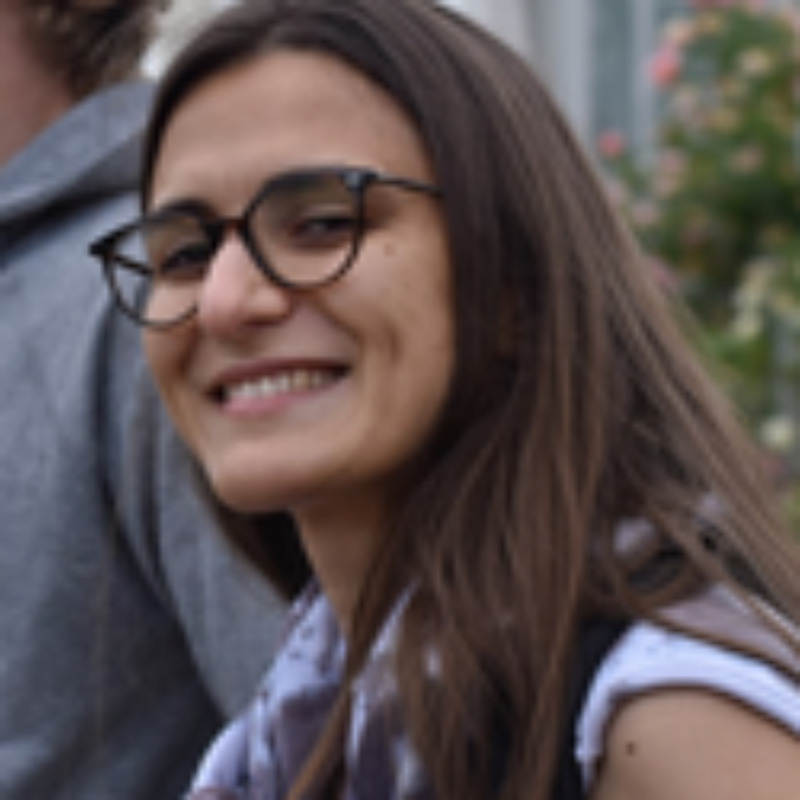
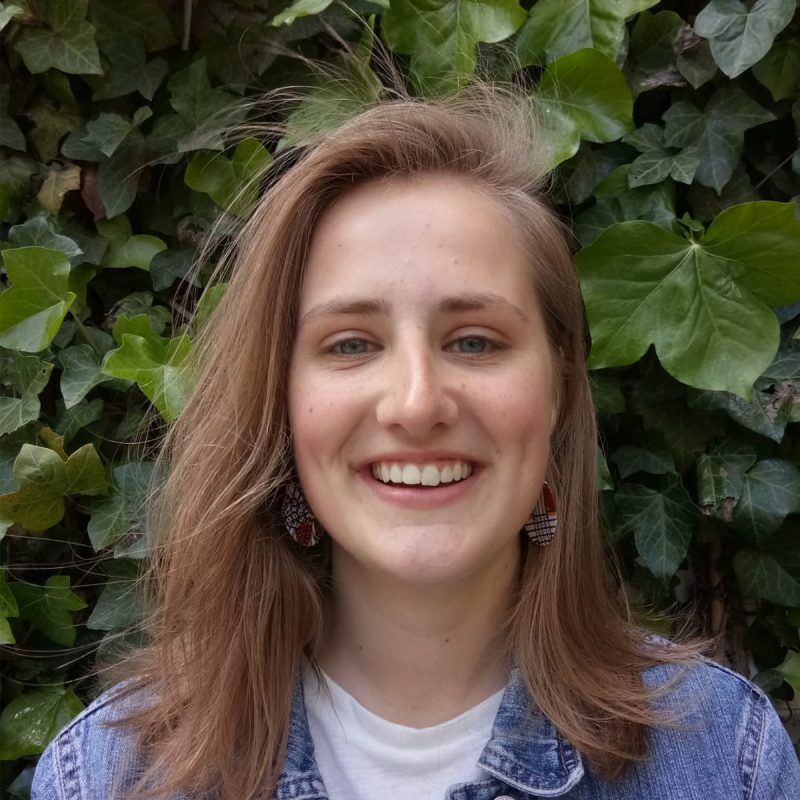
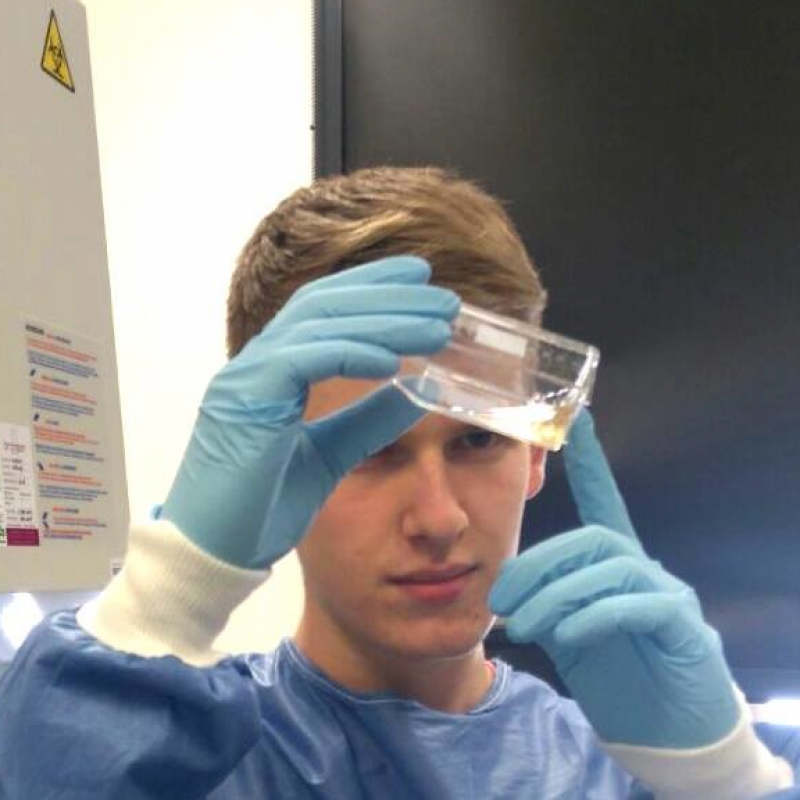
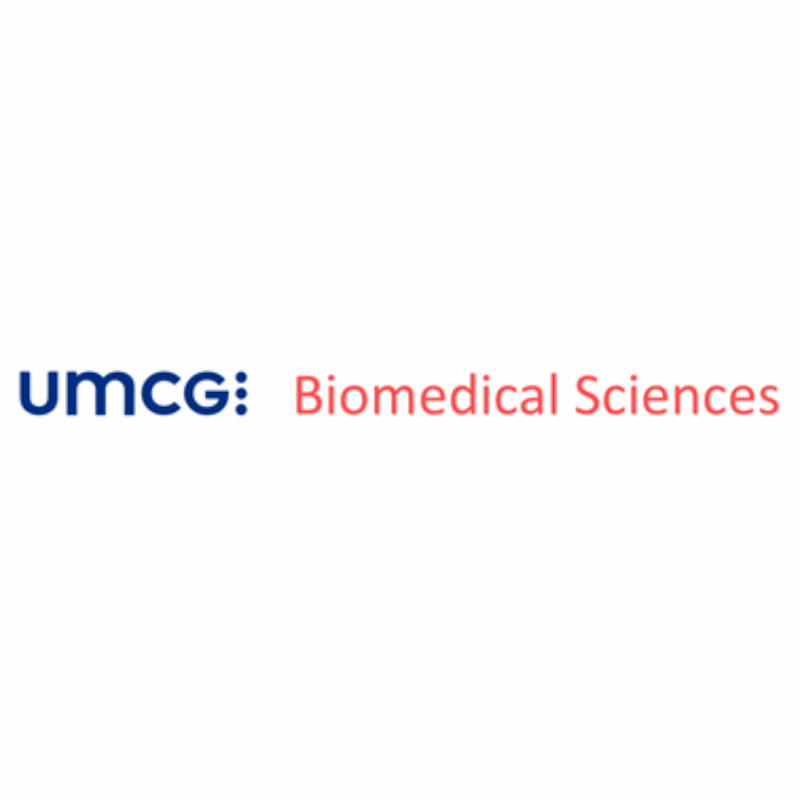
The general consensus that cells obtain their Coenzyme A via a de novo biosynthesis pathway starting with the uptake of vitamin B5 was recently challenged by work of the Sibon group, demonstrating, that cells and organisms can take up Coenzyme A from external sources. The mechanism behind this newly discovered manner of obtaining Coenzyme A is one of the topics of the Sibon lab. The presence of this alternative route of intracellular Coenzyme A is of high importance for subjects suffering from inborn genetic errors of impaired Coenzyme A de novo biosynthesis, resulting in severe neurodegenerative and cardiac diseases. Fundamental basic research findings are translated into novel therapies for Coenzyme A-linked diseases.
Selected ongoing projects/grants:
2019 ZonMW from Bench to bedside: A phase-II study of a Food-For-Special- Medical-Purposes (FSMP) for Pantothenate-Kinase-Associated-Neurodegeneration (PKAN) enabling a cost- and time-effective approach to treat the disease
2019 NWO-ALW open aanvraag: Identification of the microbiome species and their kinases required for an inter-organismal Coenzyme A synthesis pathway
2017 NWO-ALW open aanvraag: Identification of external sources of Coenzyme A for cells and organisms.
Selected previous projects/grants:
2011 VICI NWO grant: Title: Coenzyme A; back in the spotlight
2011 EU KP7 Health: Title: TIRCON: Treating iron-related childhood onset neurodegeneration.
2002 VIDI NWO grant: Title: Characterization of Drosophila mutants sensitive or insensitive to genotoxic stress (P.I.)
Dissertations supervised by Ody C.M. Sibon ((co-) promotor or assessor):
2019
Lambrechts, R. A. (2019). Childhood-onset movement disorders: mechanistic and therapeutic insights from Drosophila melanogaster. [Groningen]: Rijksuniversiteit Groningen. https://doi.org/10.33612/diss.101316004
Faber, A. I. E. (2019). VPS13A: shining light on its localization and function. [Groningen]: Rijksuniversiteit Groningen.
2018
Pinto, F. (2018). Unraveling VPS13A pathways: from Drosophila to human. [Groningen]; University of Groningen
Monteiro Morgado, L. (2018). Computational Methods for High-Throughput Small RNA Analysis in Plants [Groningen]: University of Groningen
de Boer, P. (2018). Correlative microscopy reveals abnormalities in type 1 diabetes[Groningen]: Rijksuniversiteit Groningen
Li, Y. (2018). The identification of cell non-autonomous roles of astrocytes in neurodegeneration [Groningen]: University of Groningen
Yeshaw, W. M. (2018). VPS13A is a multitasking protein at the crossroads between organelle communication and protein homeostasis [Groningen]: University of Groningen
2017
Vonk, J. (2017). Characterization of a Drosophila model for Chorea‐Acanthocytosis[Groningen]: University of Groningen
Dunham, J. T-N. (2017). Translational multiple sclerosis research in primates: Mind the gap [Groningen]: Rijksuniversiteit Groningen
2016
Alvarenga Fernandes Sin, O. (2016). Aggregation-promoting factors in neurodegenerative diseases: Insights from a C. elegans model [Groningen]: University of Groningen
Baratashvili, M. B. (2016). Rescue strategies in Drosophila models of neurodegenerative diseases [Groningen]: Rijksuniversiteit Groningen
Smeets, C. J. L. M. (2016). The molecular neuropathology of spinocerebellar ataxia type 23 [Groningen]: Rijksuniversiteit Groningen
Laturney, M. E. (2016). The second sex: Functions and mechanisms of sperm manipulation in female Drosophila melanogaster [Groningen]: Rijksuniversiteit Groningen
2015
Srinivasan, B. (2015). Rerouting ‘coenzyme A’ biosynthesis [Groningen]: University of Groningen
2012
Siudeja, K. A. (2012). Coenzyme A as a central player in cellular and tissue homeostasis [S.n.]
2011
Seinen, E. (2011). Small regulatory RNAs: identification, classification and utilizations.n.
Zijlstra, M. P. (2011). The role of heat shock proteins in polyQ disorders Groningen: s.n.
2010
Rana, A. (2010). The role of impaired de novo Coenzyme A biosynthesis in pantothenate kinase-associated neurodegeneration: insight from a Drosophila modelGroningen: s.n.
2009
Vos, M. (2009). Small heat shock proteins: Implications for neurodegeneration & longevity s.n.
PhD students:
Hilda de Vries
Ria Hut
Floris Bosveld
Xia Yi
Erwin Seinen
Katarzina Siudeja
Anil Rana
Balaji Srinivasan
Marianne de Villiers
Madina Baratashvili
Interesting websites linked to the Sibon lab
Update your browser to view this website correctly. Update my browser now